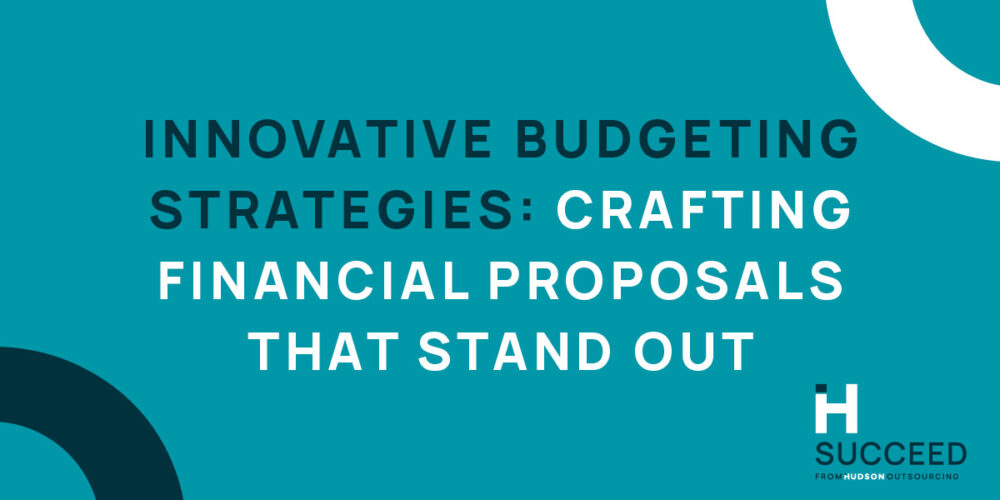Implement a tender procedure
[Last modified: July 2021]
“A robust tender procedure can not only help your business win contracts now but also secure work for the future. The best strategies include activities that can be executed come rain or shine. This should include thorough tender tracking, an efficient bid or no-bid decision-making process and a bid management action plan.” – Daniel Hall Head of Bid Management at Hudson Succeed.
The announcement of a second national lockdown comes as solemn news to all businesses in the UK. However, we don’t believe in simply throwing your business development plans out of the window or postponing them until 2021. If we look at what happened during the last lockdown, we can see that procurement didn’t stop. Local authorities and central government bodies still published tenders to procure services throughout the uncertain period.
Looking at the current situation, our Hudson Discover division continues to report that the number of tenders published isn’t dropping – it’s rising. With this in mind, we strongly advise implementing a robust tender procedure to help you through this time.
If you have never tendered for work before, we know that the procedure can seem like a minefield. But don’t worry! We will continue to produce helpful resources through our Hudson Insight Series. Our Hudson Helpline will also remain open and available for answering quick questions about the tendering process.
How can tendering help your business?
In the UK, hundreds of tendering contracts are published every day. These are new business opportunities just waiting to be won by you, the supplier. Tendering is very much an outbound form of business development. You have to be proactive, go out and find the opportunities. But they are there.
At Hudson Succeed, our bid writers have been helping clients with writing bids for almost two decades. We support over 700 businesses in countries across the globe. During this time, we have seen clients achieve success such as:
- Winning a £200 million contract from just one tender, securing the next 5-years of income for the client;
- An annual turnover increase of 20% from winning three tenders;
- A successful entry into the UK market by securing a £350,000 contract.
Find more success stories and testimonials.
When tendering for work in the public sector, buyers have to be fair. The contracts are funded by public money. This means that there is a more level playing field between larger businesses and SMEs. In turn, this allows smaller, newer businesses to gain experience, deliver work in a variety of sectors and ultimately – grow.
Futureproofing your tender procedure
Once you have decided to explore the tendering route, it’s time to implement a futureproofed tender procedure. This will ensure that your process can be maintained regardless of internal staffing or external, societal changes.
In our experience, we recommend taking the following measures to ensure your tender procedure is robust.
-
Create an operational process
This should be an easy-to-follow guide, outlining your tendering process. This will allow other teams to support the system should you require extra resources. The guide doesn’t have to be a technical ‘how to be a bid writer’ manual. However, a member of another team should be able to read the process, understand where the support is required and how to provide it.
-
Internal training
Should you wish to keep the tendering process in-house, we advise training more than one member of your team. In business, we know that circumstances can change rapidly and reactively trying to train someone new could hinder your chances of success in the future. However, it is important to remember that bid writing does require a certain set of skills. If you don’t have exceptional written communication skills in-house, it makes sense to outsource the work.
-
Allocating budget/resources
This will depend on the decision you make after reviewing the above point. If you decide to outsource your bid writing services, it’s important to allocate a specific budget to these projects. Unless pre-informed by the buyer, it’s impossible to know when relevant tenders will be published. However, a monthly pre-allocated spend towards bid writing will help you to budget for other business development strategies.
If you can keep the tender procedure in-house, we would advise allocating time and resources for reactive work.
Which tenders should you be bidding for?
If you have read our other Insight blogs, we often talk about performing a company analysis before bidding. This will allow you to quickly assess tendering opportunities and make efficient bid or no-bid decisions.
In your company analysis, it is beneficial to assess the following;
- Your goals – which buyers do you ideally want to work with, and which contracts do you want to deliver?
- Your turnover – you need to have a clear understanding of your economic and financial standing before jumping into bidding.
- The company’s experience – you need to consider the experience you already have under your belt. Which contracts can you easily demonstrate, and will they strengthen your bid response?
- Your capabilities – be realistic and know what you can and can’t deliver. Think about regional constraints, staffing and logistical capabilities.
Once you have assessed the above, you can begin to make better decisions that won’t cost you unnecessary time and money.
In this checklist, points two and three are particularly important. Your turnover and experience will determine the type of tender you are eligible to bid for. We have provided a quick breakdown of some of the contract types you will come across and who should bid for them.
Frameworks
A framework agreement usually asks for multiple suppliers to deliver goods/services under one contract. You can think of it as a way for buyers to house large projects under one roof. Typically, a framework will be divided into multiple lots, for example:
- Lot 1: Architecture
- Lot 2: Joinery
- Lot 3: Landscaping
- Lot 4: Electrical services
For smaller businesses, bidding for work on framework agreements can be a great first step in tendering for work. Often, buyers don’t require as much experience or turnover from suppliers as they would on a single-provider contract.
DPS
DPS stands for Dynamic Purchasing System. This might sound complicated, but it simply refers to a supply chain list where tenders are published to members. In order to tender for the works, you first have to secure a place on the DPS. Buyers will either open their DPS application process every so often or leave the application open for a number of years.
Similarly to framework agreements, DPS’ offer smaller businesses the chance to start their tendering journey. Suppliers can bid for smaller contracts that arise on the DPS without as many turnover or experience constraints. For this reason, SMEs may want to consider adding dynamic purchasing systems to the tender procedure plan.
Single-provider contracts
When you have built your experience and grown your business to the next level, you can consider single-provider contracts. As a general rule of thumb, we usually advise clients to only bid for contracts worth half their turnover. For example, if a contract has a value of £500,000, you should be turning over at least £250,000.
It all starts with the right opportunity
The tender procedure begins when you identify the right opportunity for your business. But with so many portals to keep up to date with, this can seem like an impossible task. There are tendering portals that amalgamate opportunities from different systems for you. However, in our experience, these portals require a good understanding of CPV codes. Not only that, but their reliance on CPV codes means that you might still have to sift through irrelevant opportunities. When conducting research, we found that a third of tenders were incorrectly tagged.
With this in mind, we created our Hudson Discover division. Like Hudson Succeed, the aim of the division is to help your business grow by tendering for work. The difference is that the Discover Team focus on finding the right opportunities for your business. To do this, they search thousands of sources from across the UK. When new tenders are published, they upload them to our sector-specific tendering portals. The opportunities are then tagged with industry-driven keywords to make searching the portals even easier.
Our Hudson Discover portals consist of:
Need help getting started or increasing your win rate?
Do you need help with implementing your tender procedure? Are you already tendering for work but not seeing success? To help you combat these hurdles, we created our tender support packages.
Tender Ready
The Tender Ready programme has supported numerous businesses in varying industries. The programme was designed for businesses who are new to tendering and looking to take the first step. Included in the package is:
- The creation and branding of the corporate literature you will need to tender for work, e.g. case studies and company CVs;
- Help to identify the tenders that your business should be bidding for;
- 12-months access to the Hudson Discover tendering portal of your choice;
- Three days of bid writing consultancy to either write your first tender or guide you through two.
Learn more about Tender Ready.
Tender Improvement
This package was designed to help you improve your bid success rate. If you are already tendering for work but not winning, we understand that this is frustrating. You are using valuable time and resources to write and submit your bids, therefore losing continuously can be infuriating. There is often a simple explanation as to why you are not seeing success. During this service, our team will:
- Assess your previous tender responses and your corporate literature, providing tips for improvement;
- Re-develop, where necessary, any literature that could be improved;
- Grant 12-months access to the Hudson Discover tendering portal of your choice;
- Provide three days of bid writing consultancy to help you successfully respond to the next tender you choose to bid for.
Learn more about Tender Improvement.
For support with a one-off tender or more information about any of our services, please get in touch. Our team of experts proudly holds an 87% bid success rate so you can be sure that your bid is in safe hands.
Find more helpful tips and advice in our blogs. We cover topics including:





